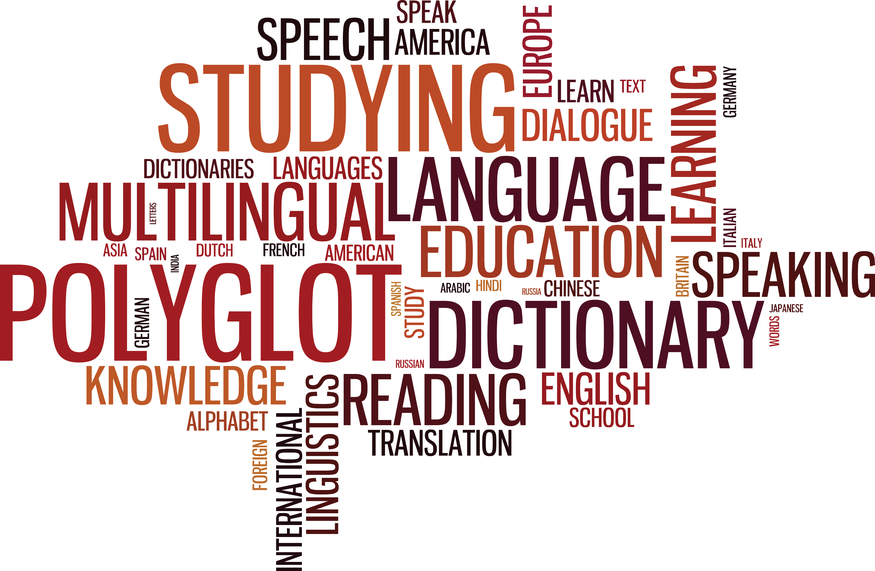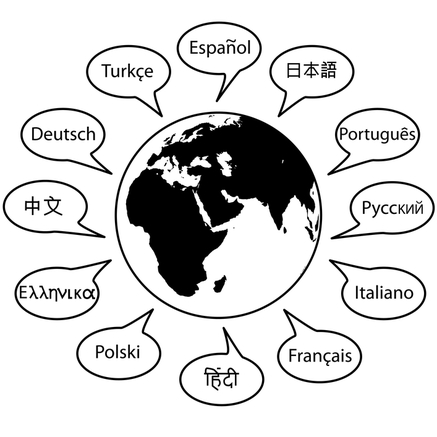I tend to pick up languages and accents of people around me and unconsciously mimic them. Generally this isn’t a big deal, and can be quite a bit of fun, though it has gotten me into trouble a few times when I mimicked someone I shouldn’t have in a sensitive situation.
I have been holding 5-10 conversations per week with Australian clients and potential clients in my role with the research-helper-outer company for four months now. As I got more comfortable with these calls and they became more frequent, I started speaking in an Australian accent whenever I am on a call.
This accent was so automatic as to be nearly unconscious, and I didn’t bother trying to suppress it, as it seemed to help form a better rapport with the clients. I mentioned it to my boss a couple times, but he never said anything about it, so I continued on my merry way.
Then for an unrelated reason, one day this week I asked my boss, who is Australian, to listen in on one of my client calls. His first question afterward was an incredulous “what was with the accent?!?”
I reminded him that I had talked to him about it previously, and he retorted with: “well yeah, you told me that you spoke in an Australian accent with the clients. But your accent in that call was almost completely British, with a little confusing South African thrown in. It was 0% Australian. However, It was also 0% American… In fact, you probably shouldn’t tell people you’re from the US; they might think you’re making fun of them and feel insulted.”
Outwardly I laughed at myself and we had a good conversation about the situation. But inwardly I cringed… 0%? My accent didn’t even have a little bit of Australian in it? Good God, why didn’t someone tell me? I feel like an idiot now! Why didn’t I… well, actually I don’t know what I could/should have done differently, but I felt ashamed and stupid and silly.
Enter the Power of Upbringing
Both my parents graduated from college, and I grew up in what my 3rd grade teacher delighted described as “one of the richest home learning environments I’ve ever seen.” My mom and dad’s house has no fewer than twenty book cases, more bicycles than people, numerous pairs of skis (downhill and cross-country), equipment for easily a dozen sports, several pianos, at least four guitars, various other musical instruments, gads of learning toys (now enjoyed by the grandkids), and an entire bureau of drawers filled to the brim with arts, crafts and drawing and painting supplies.
As far as I know, my parents didn’t set out to create a “rich learning environment.” They just wanted things around that were meaningful to them, and shared them with us kids. Both my parents love to create and learn about art, music and science, and it shows in their home. Additionally, we were financially stable, and whatever struggles we may have had, I never once went hungry.
In addition to the tremendous benefit from all of the above, I also inherited from both of them a fierce persistence, determination and motivation to go after what I wanted.
But How Can You Learn a Language In Stevens Point, Wisconsin?
The entire population of native Spanish speakers in my hometown growing up consisted of a few dozen exchange students, a few Spanish teachers and a couple of spouses dragged back from parts unknown. Our “Mexican” restaurant consisted of Taco Bell full stop.
Yeah yeah all you city-philes and city-dwellers and border-dwellers and horrified lovers of ethnic diversity, laugh it up. But that’s simply the way it is for millions of people like me who grew up in smaller cities and towns in the Midwest.
Plus, I would like to point out that these comments do not hold true for Stevens Point, Wisconsin today. Even a city of 23,000 in central Wisconsin has several Mexican restaurants and much more contact with Latin American people and cultures than several decades ago when I was growing up.
My First Taste of International Travel
To put me off about the trip to Mexico, my parents said if I could come up with $100 in 2 months, they would pay for the rest of my trip. They probably assumed it was an impossible task for me at 12, but my eyes lit up with a “Yes!” no matter how qualified. Now a hundred bucks might not sound like much to you, but it was a helluva lot of dough to come up for a kid my age.
But I never even considered not doing it. I immediately started calculating how to make it happen, and got myself a paper route delivering the Milwaukee Journal-Sentinel. It was the only job legally available to a 12-year-old, so I practically sprinted to the office and begged for it.
And I did it. My parents seemed shocked that I had actually pulled the money together in time, but without much fuss put up the not-inconsiderable sum of $2,000 to finance the rest of my first trip abroad.
From the moment I landed in Mexico, I was hooked on both travel and language learning. Within days of returning from the trip, I informed my parents that I would be returning with my Spanish class the following year. They agreed… as long as I came up with half of the cost this time.
And I’ll be damned if I didn’t instantly hatch up a plan to save up the money. It was a lot more cash this time, but I had almost a whole year to prepare. I don’t think I came up with the entire sum, but I remember saving over $1,000, and to this day I don’t understand how I managed it on a paper route, a few lemonade stands and a $5 a week allowance.
That was the last time my parents financed a trip abroad… and the last time I needed them to.
Better Language-Learning Through Bloody-Mindedness
And I did. Every day I sat myself in front of the mirror for 30-60 minutes, glaring at myself and trying over and over again to roll my “r.” One day near the end of summer I finally got it. I continued practicing my pronunciation, especially the “r,” for the last week of summer vacation. But now the practice was fun and joyful, since I was getting it. Just as school started up again, and I started year two of Spanish class, I could roll my “r’s” reliably, a feat none of my classmates had achieved.
My classmates looked at me in jealous awe and said “wow, language learning must be so easy for you, to already roll the ‘r’ correctly.”
If they only knew.
Yeah, sure, I’m smart. I won the genetic lottery on that one; I won’t deny that. I’m a sharp cookie, or whatever the saying is. But my IQ had nothing to do with my learning to roll the letter “r.” And it did not “come naturally” simply because I was “gifted” at languages or because I have the “language gene” or because I’m such a smarty-pants. I learned that skill because of sheer bloody-mindedness, unwavering persistence and working my butt off for three months straight.
So Then, Do I Actually Suck At Languages?
Because I had such an educationally privileged upbringing, I never took those negative comments seriously. They simply slid off me like water off a duck’s back. I assumed they were outliers on my language journey, and that I truly was talented and special. It’s like I never even heard the people telling me “you can’t.” Such is the power of privilege.
But now with this new piece of undeniable information potentially requiring immediate action, I took all of those previous questionings of my talent seriously. And began wondering: “do I actually suck at languages? But I’ve been so confident that no one told me? Or that they tried to tell me but I wouldn’t listen?”
I pondered that question deeply for about a day, as I hiked up the mountain next to my house. I exhausted my physical energy to try to escape from the psychological/emotional angst I was feeling about what makes me valuable and special. I came to the tentative conclusion that it was true – I’m not that great at languages, at least not in the way I previously assumed.
But deep down I knew that didn’t hold water... something wasn’t right.
My Current Language-Learning Adventure
Well, “learning” is a strong word to use in this situation. Mostly I was just parroting her, and repeating exactly what she was saying back to her. If I allowed more than a few seconds to pass between her saying the word/phrase and me repeating, I could no longer do it.
I didn’t feel like I was doing anything special, but she was utterly astounded with my ability to reproduce what she was saying so exactly, and couldn’t get over how natural I sounded. I made it abundantly clear that I had no idea what I was saying. I could easily reproduce what she said to me in a near-flawless Mandarin accent, as long as it fit into my short-term memory, but this material was not “learned” in any way, and I couldn’t repeat it even ten seconds later.
So maybe it’s my ears that are special? Or my short-term memory listening? Or is it knowing what I want and making a beeline for it? Hell I don’t know, but in the end it doesn’t matter. I’m no longer concerned, let alone upset about whether I’m a “special” language learner. I don’t care whether it’s talent, dedication or something else entirely.
What IS important to me is that learning about languages and cultures makes me happy, and I enjoy it, and I am willing to spend long hours practicing and playing with it, and sharing about it with people.
I will pay more attention to my “unconscious” accents, and the fact that they may be far from perfect, and potentially insulting. But I will continue to utterly ignore the naysayers, and plan to succeed beyond my wildest imagination.
And That’s the Secret of Upbringing
So how far can a privileged upbringing get you on the road to language learning?
Pretty far, it turns out.
Thanks Mom and Dad.








 RSS Feed
RSS Feed